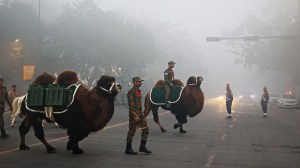Pre-emption premonitions
The US National Security Strategy has already spelt out the doctrine of pre-emptive use of force to deal with future and emerging threats. T...

The US National Security Strategy has already spelt out the doctrine of pre-emptive use of force to deal with future and emerging threats. The US Secretary of State Colin Powell, in the recent testimony to the Senate Foreign Relations Committee, sought concurrence for this doctrine to be applied to Iraq. General Powell, of course, is right that pre-emption has been embedded in history. It is also true that pre-emption may be the only prudent strategy under certain circumstances. But there is a need for great care and caution in applying the principle. While the right of self-defence is enshrined in the UN Charter, pre-emptive attack on another member of the UN under this principle would remain questionable unless the issue of legitimacy is transparently clear. In the present circumstances, there is inadequate evidence of such legitimacy unless it is unambiguously authorised by the UN Security Council.
It is true that the greatest danger to peace, prosperity and security today emanates from terrorism, especially the vicious variety which is driven by religious extremist ideologies. The use of terror as an instrument of politics by other means has raised it to the level of war. The initiative in such war intrinsically rests with the terrorists, since they are able to pick the time and place of attack which then, more often than not, can only be dealt with after the event. Fighting terrorism, by its very nature, is reactive and enough data for effective pre-emptive attacks is rarely available.
But success does not necessarily follow pre-emption. Israel destroyed Iraq8217;s nuclear reactor two decades ago in a pre-emptive attack. This seems to have goaded Iraq to pursue its WMD programme vigorously since then. Israel has been carrying out pre-emptive strikes on terrorists for years. But terrorist violence is far from ending. For India, which has been the victim of cross-border terrorism for 18 years, terrorist camps, and sanctuaries would appear to be legitimate targets for pre-emptive attacks. What should hold us back are the political dimensions of such a course of action. It is, therefore, surprising that General Powell was silent when asked whether the US doctrine would not provide a precedent to others, especially India. Leave alone the US, even General Musharraf, by implication or otherwise, has conceded that Pakistani territories have been used for terrorism.
- 01
- 02
- 03
- 04
- 05































